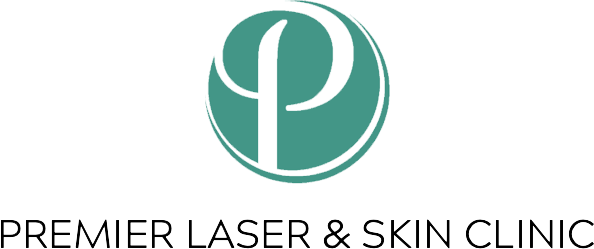What Is Folliculitis?
Folliculitis is a common skin condition which can be uncomfortable and irritating. It arises from either infection or blockage of the hair follicles when it becomes in-grown. It can develop on anyone, both men and women, although certain factors can make some people more likely to get it.
can laser hair removal cure folliculitis?
Yes it can is the short answer. If it can cure yours would depend on a number of factors. These include the cause of your folliculitus and your suitability for laser hair removal treatment. To fully understand your condition and find out about treatment options keep reading.
Common causes of Folliculitis
These include:
- Existing acne or dermatitis
- Having a medical condition (diabetes, leukemia and HIV/AIDS)
- Medications including steroid cream or antibiotics for acne
- Clothing such as rubber gloves or high boots which are poorly ventilated
- Medications including steroid cream or antibiotics for acne
- Using poorly maintained hot tubs
- Damaged hair follicles via shaving, waxing or tight clothing
- Men with curly hair
Symptoms
Initially it may appear around the hair follicle as small red bumps or white-headed pimples. The follicles are the tiny pockets from which each hair grows and where the name folliculitis derives.
Most often it clears up in a few day but in more serious cases they can become infected. The infection can then spread and turn into non-healing, crusty sores leaving scarring.
Usually a condition which is suffered by males, it is caused by a variety of factors and appears in different guises.
Types Of Folliculitis
Folliculitis can be either superficial or deep. Superficial folliculitis involves part of the follicle. Deep folliculitis involves the whole follicle and is usually more problematic and severe.
Superficial Types Of Folliculitis
-
Bacteria Staphylococcus Aureus
The most common types include that which is caused by infection of the bacteria Staphylococcus Aureus and that which is caused by many ingrown hairs. The appearance of both kinds of folliculitis is very similar with red inflamed pimples appearing on the area of each hair follicle, sometimes with a yellow head present which can be itchy and pus-filled .
Staphylococcus infection is often transmitted from the sufferer’s own nose where this bacteria is usually present; generally the bacteria is completely harmless until it colonises areas it’s not meant to be…i.e. the hair follicles!
-
Folliculitis barbae
The other kind of folliculitis, sometimes called razor burns, is caused by in-growing hairs which become twisted within the follicle and cause a nasty pimple; this is usually found in men with curly hair.
It is more common in Asian and African and Caribbean men. The friction caused by shaving can damage the follicle and that’s when folliculitis occurs.
-
Hot tub folliculitis (pseudomonas folliculitis
Is caused by pseudomonas bacteria, which is found in many places, including hot tubs and heated pools in which the chlorine and pH levels aren’t well-regulated.
The risk factors for folliculitis don’t only include shaving though…if you spend a lot of time in public baths or hot tubs then you’re at increased risk as bacteria thrives in warm, wet places and this is a common way for people to pick up the bacterial strain of folliculitis.
-
Pityrosporum follicculitis
Is chronic, red, itchy pustules on the back and chest and sometimes on the neck, shoulders, upper arms and face. This type is caused by a yeast infection.
Forms of deep folliculitis include:
-
Sycosis barbae
Affecting men who have started to shave.
-
Gram-negative folliculitis
Develops if you’re receiving long-term antibiotic therapy for acne.
-
Boils (furuncles)
These occur when hair follicles become deeply infected with staph bacteria. A red or pink bump or boil usually appears and can be painful.
-
Eosinophilic folliculitis
Mainly affecting people with HIV/AIDS.
Shaving and folliculitis
As the saying goes prevention is better then cure. Tips for avoiding folliculitis include avoiding shaving if you don’t need to be clean shaven. Not an option for everyone but consider growing a beard if you have suffered from folliculitis and want to lower your risks.
If you must shave do it with care and if you can less frequently. Try and adopt good shaving habits such as washing with warm water using antibacterial soap before you start.Raise embedded hairs with a soft pad by or flannel and apply generous amounts of lotion before you start.
Other tips include:
- Shave in either direction. There is not one rule for everyone. Do what works for you.
- Try not to shave too close either by stretching the skin or using an electric razor.
- If you are shaving manually take care to rinse the blade after each stroke with warm water.
- Applying moisturising lotion after you shave.
- Try not to share razors, towels and flannels
How to get rid of folliculitis
Folliculitis can be prevented by scrupulous bathing and by exfoliation and regular shaving breaks. For some men however, they find that recurrent infection is so regular that the best course of action is to have the hair in the problem area permanently removed with such treatments as laser hair removal.
Laser treatment for folliculitis scars
Laser hair removal will destroy the problem hair follicle safely without damaging any surround skin tissue as well as being able to diminish the appearance of any scarring that may have resulted from folliculitis.
In addition to helping treat folliculitis it will also reduce your chances of developing the skin problem in the future.
Laser hair removal for folliculitis before and after picture
Laser hair removal prices
Prices for laser hair removal start from £22 at Premier Laser. Advanced laser now work on all skin types and tones from light to dark skin and can bring you excellent results and an end to painful folliculitis.
Next Steps if you live in London
If you live in London near one of our 9 clinics why not book a free consultation with one of our friendly laser specialists. Since 2008 we have performed over 500,000 laser treatments on Londoners of all colours and genders and are London’s leading independent laser specialists.



